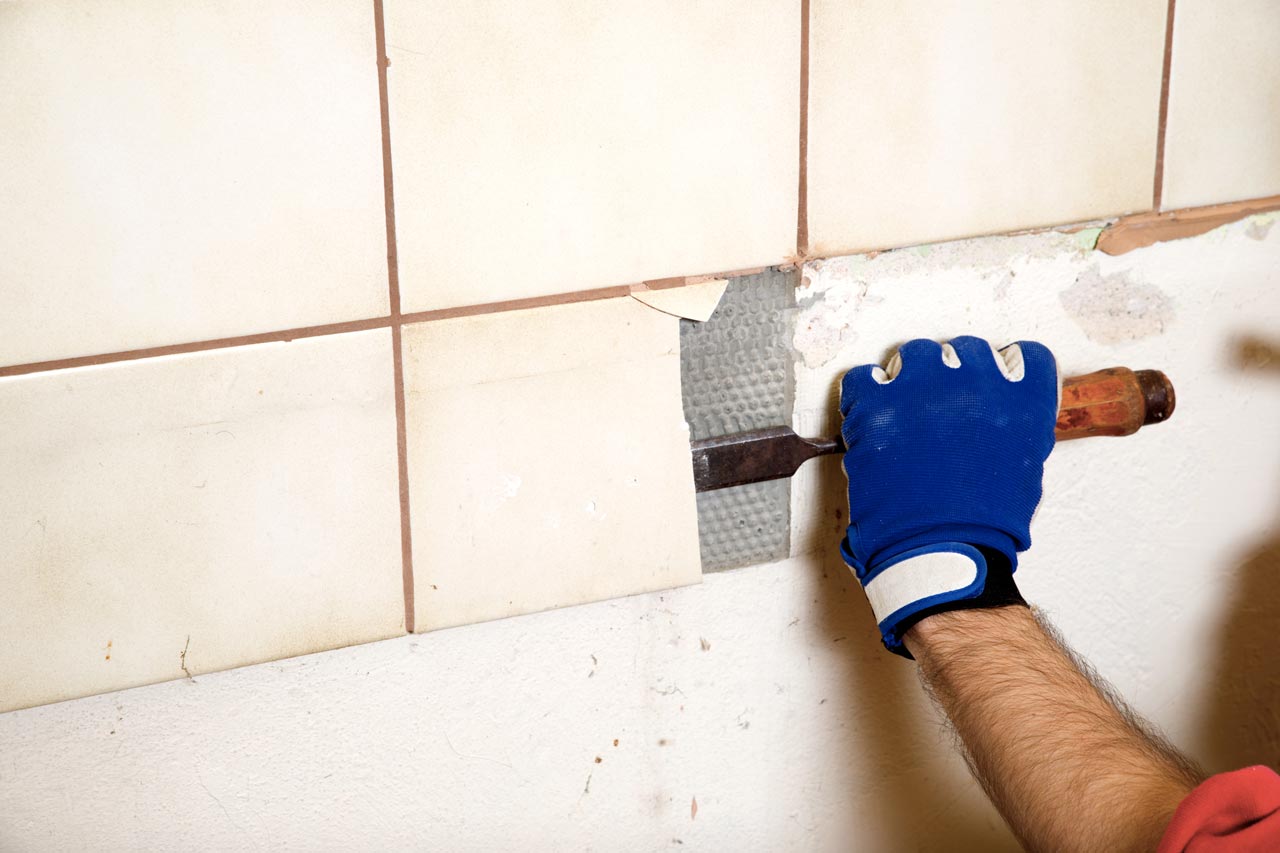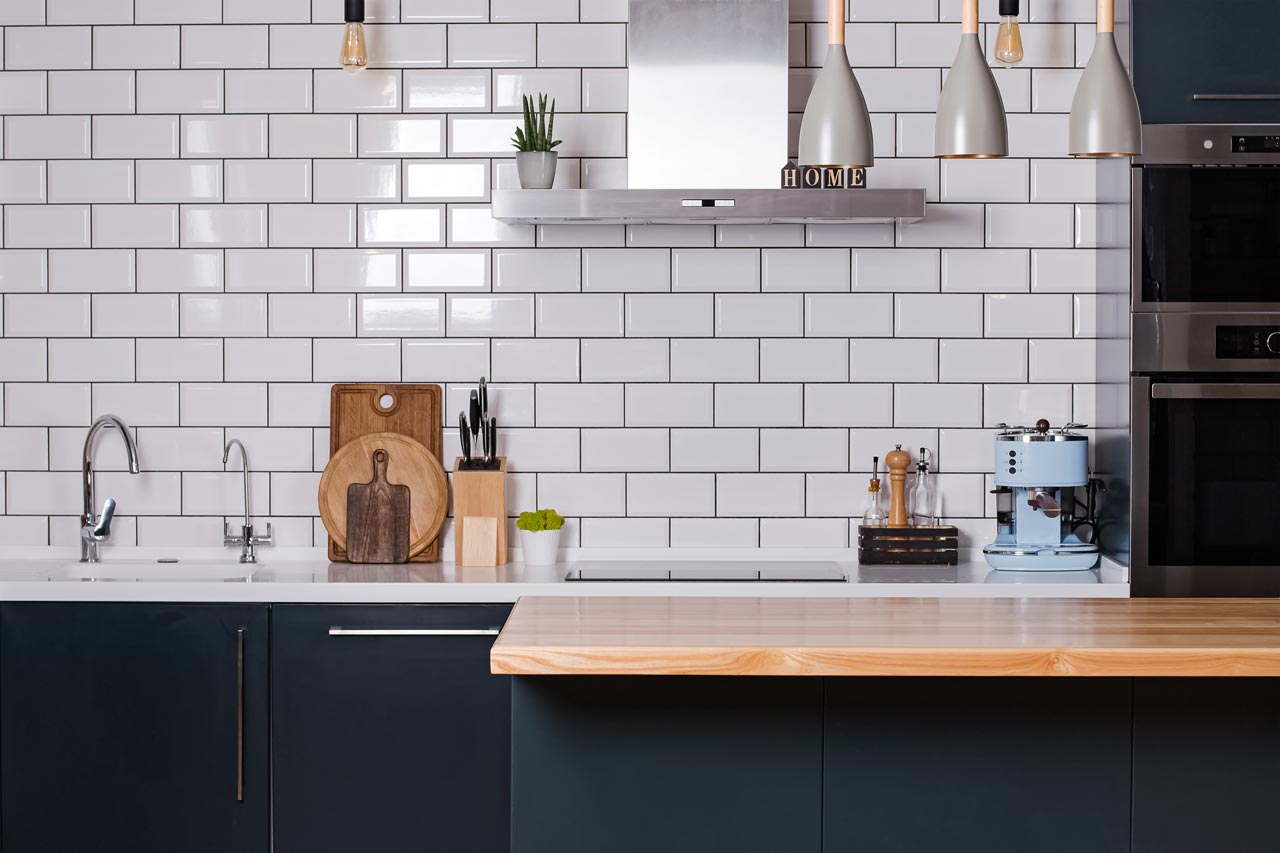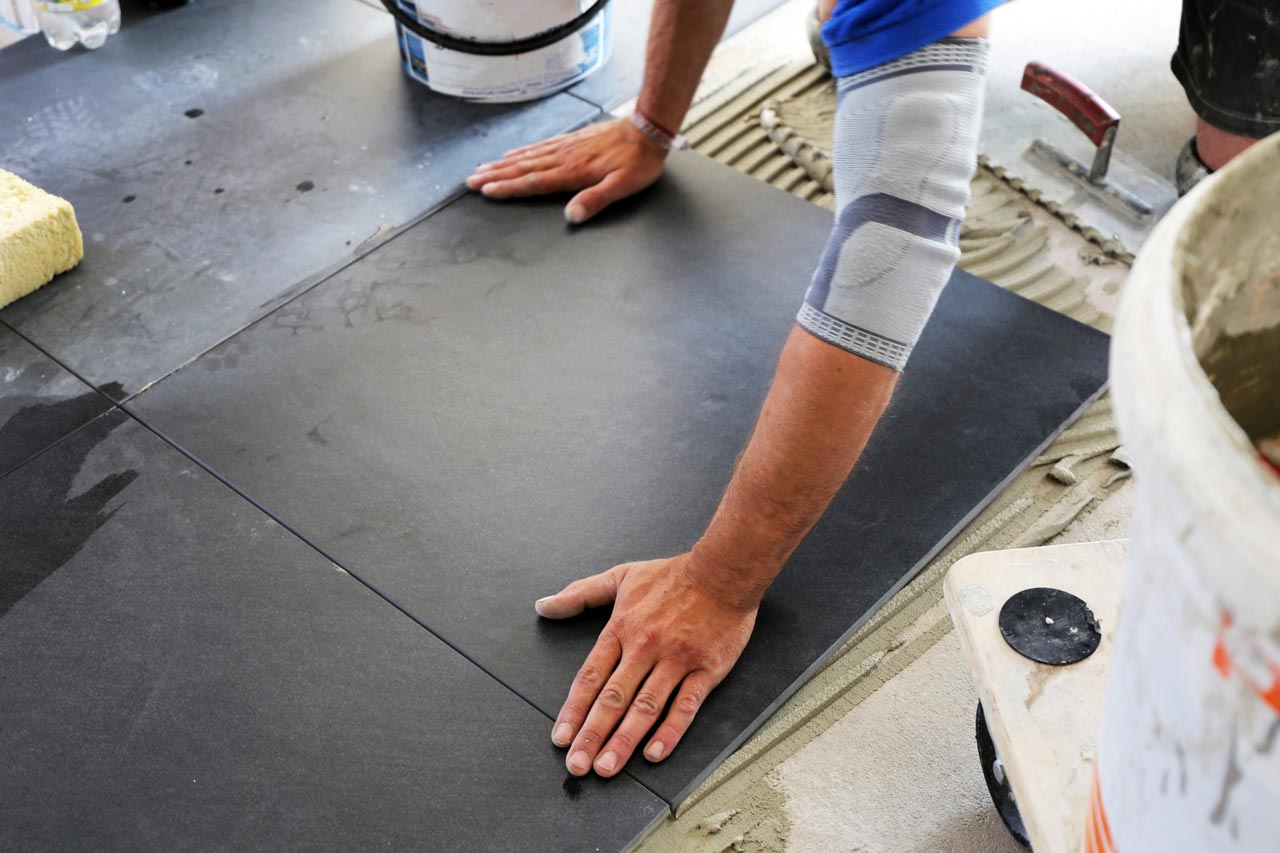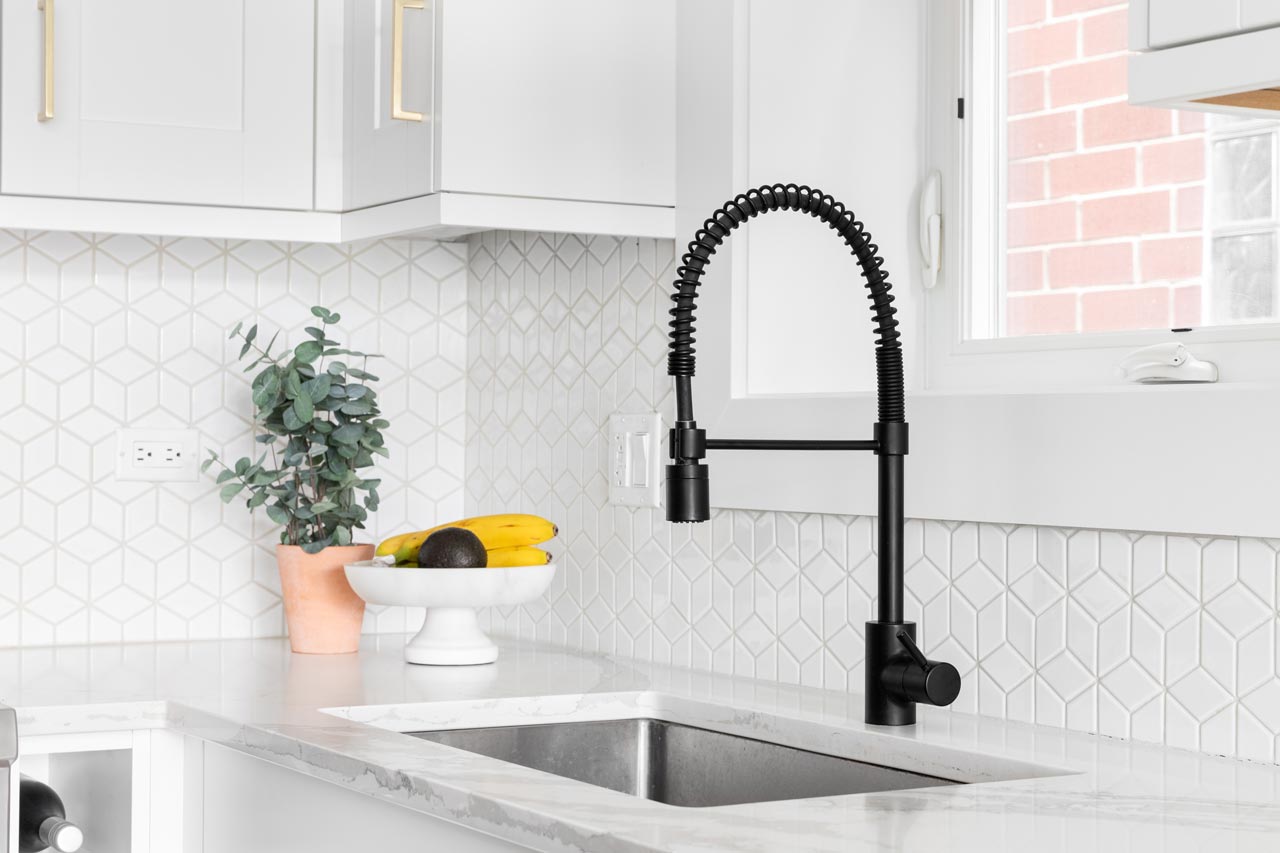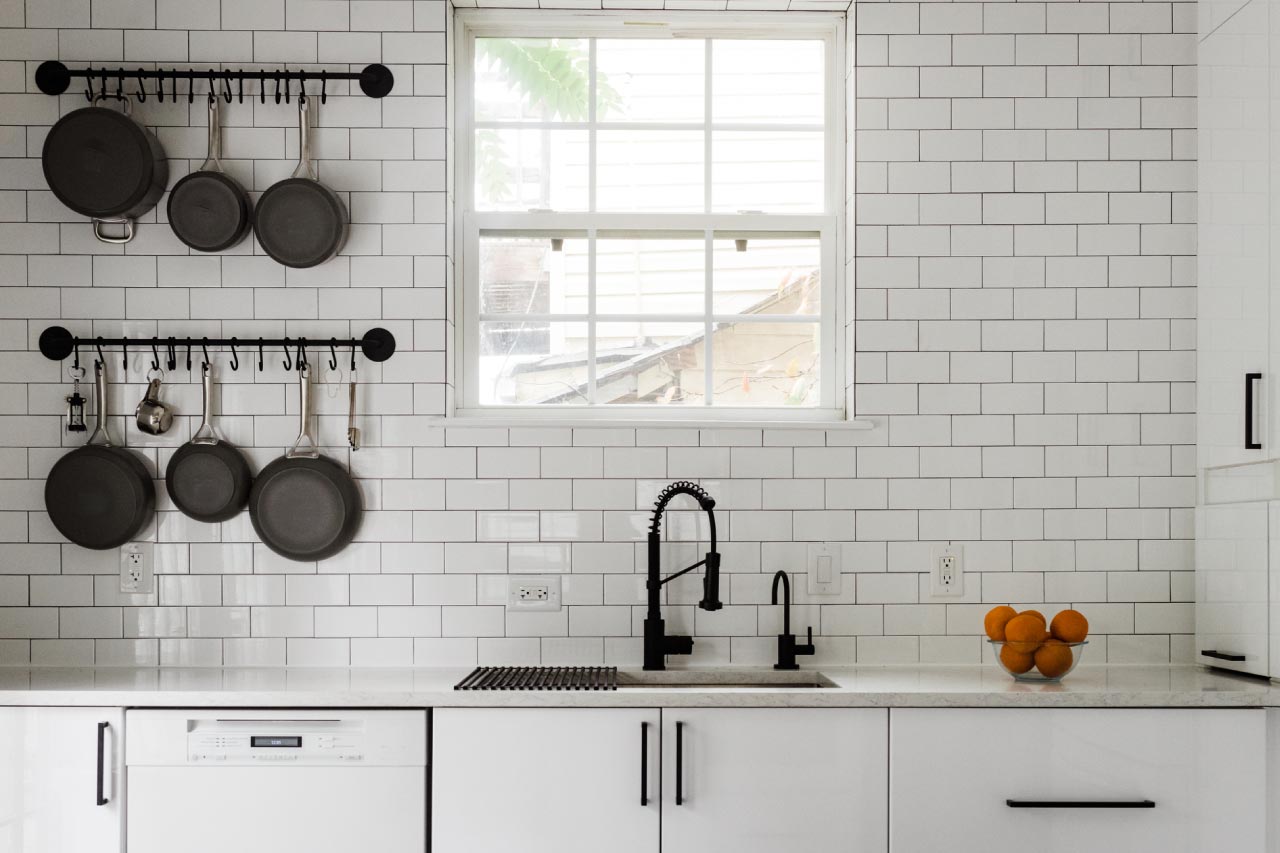How Much Does Ceramic Or Porcelain Tile Installation Cost?
Typical Range:
$949 - $3,427
Typical Range:
$949 - $3,427
Cost data is based on actual project costs as reported by 17,363 HomeAdvisor members. Embed this data
.
.
.
.
.
.
.
.
.
.
.
.
.
.
.
.
.
.
.
.
.
.
.
.
.
.
.
.
.
.
•
•
•
•
Updated April 16, 2024
Reviewed by Dan DiClerico, Smart Home Strategist and Home Expert.Hiring a pro ensures the best possible finish, saves time, and handles complex installations and surface preparations.
The average cost to install ceramic or porcelain tiles ranges from $5 to $17 per square foot.
Removing old tiles, challenging installations, overages, and ongoing maintenance impact the project cost.
Popular materials for tile installation include ceramic, porcelain, metallic, large-format, and mosaic tiles.
Signs you should undertake a tile project include damaged or old tiles, complex layouts, and damaged subsurfaces.
The project benefits include low maintenance, potential for complex designs, and durability of ceramic and porcelain tiles.
Highlights were summarized from this existing cost guide text using automation technology and were thoroughly reviewed for accuracy by HomeAdvisor Editor Ryan Noonan.
The national average cost of tiling projects is $2,114, or between $949 and $3,427. Porcelain costs $7 to $45 per square foot to install, while ceramic costs $4 to $115 per square foot to install.
The higher end of the price range is for custom tiles that are inlaid, sculpted, or painted by hand. The price you'll pay for your tiling project depends on the area you need to cover, whether you choose ceramic or porcelain, and the tile format and finish.
Let's calculate cost data for you. Where are you located?
Where are you located?
| National Average | $2,114 |
| Typical Range | $949 - $3,427 |
| Low End - High End | $400 - $7,000 |
Cost data is based on actual project costs as reported by 17,363 HomeAdvisor members.
Many variables make up the final project price, aside from the cost of materials and labor. Here are some of the most common factors.
If you're looking to remodel your bathroom or upgrade your kitchen, you'll likely need to replace old tiles rather than just add new ones. Ripping out old tiles and repairing any damage to the subsurface typically costs $5 per square foot. You may pay as little as $3 per square foot or as much as $7 per square foot.
When you receive a quote from a contractor, ask for an itemized estimate and whether it includes the price of removing tiles and installing new ones.
If the area you're tiling has a complex layout, has extensive damage to the base layer, or is in some other way more challenging, your labor cost for installing tiles will climb rapidly, so remember to leave some wiggle room in your budget.
Make sure you order 10% to 15% more tiles than you think you need. This ensures you have enough to account for any damages during installation. Plus, if you keep your leftovers, you can have that one replaced from your existing stock when a tile gets cracked or damaged.
Remember that the tiles you choose now may not still be in production in 10 years. Even if they are, it's likely the colors won't be an exact match, so having some backup tiles is smart.
Porcelain and ceramic tiles are fairly low maintenance to upkeep, but they do need regular cleaning. Plus, the grout will periodically need cleaning, whitening, or replacing, as will any seals. While all these things are individually inexpensive, they’re ongoing costs you need to be aware of, even if minimal. And, if a tile breaks or cracks beyond repair, it needs replacing immediately—particularly in a damp environment like a shower.
While hiring a tiler typically costs up to $15 per square foot or $60 to $120 per hour, they may charge a little more if you only have one or two tiles that need replacing, as the pro will usually have a minimum callout fee that's equal to at least a couple of hours of their time.
The amount of surface preparation required before the contractor can lay the tile significantly impacts the project price. A smooth surface that just requires adhesive takes minimal time, but a cracked, damaged, or uneven surface that requires substantial intervention to make it suitable for tile can add many hours of labor to your project price. Similarly, removing old tile, then prepping the underlying surface adds time and labor costs to your total.
If you're having tile laid over a wooden subfloor, you'll need to account for backer board installation during the preparatory phase. This costs an additional $5 to $8 per square foot. Subfloor repair is costly, at around $40 to $65 per square foot. In addition, you'll pay approximately $3 to $10 per square foot on top of any repair costs for a local tile repair pro to resurface a concrete subfloor.
Where you're installing tile determines how much the project costs because the tile size, type, and prep work all differ based on location. Kitchens and bathrooms cost more to tile because they require vapor barriers and impervious, or very well-sealed tiles and grout resistant to moisture damage. Floors are generally less expensive to tile than walls because floor tiles are often larger, so they take less time to lay.
Kitchen backsplashes cost an average of $300 to $1,000, while bathroom backsplashes cost $600 to $1,350. The cost to install tile floors made of porcelain or ceramic is typically $5 to $17 per square foot, with hallways and laundry rooms falling at the lower end of the budget, kitchens in the middle, and bathrooms at the upper end.
There are two types of tile rating: strength and porosity. Strength rating tells you what application the tiles are suited for, while porosity tells you their absorbency rating.
| Tile Class | Suitability |
|---|---|
| Class I | For use as wall tiles only |
| Class II | Walls and light traffic areas such as bathrooms |
| Class III | Suitable for countertops and walls, plus areas of moderate foot traffic |
| Class IV | Suited to use in all residential applications |
| Class V | Maximum durability; rated for industrial and commercial use |
| Tile Type | Cost per Square Foot | Properties |
|---|---|---|
| Non-vitreous | $1 – $5 | Most absorbent tile type; absorption rate of 7%; best used in dry indoor locations; commonly used as accents or decorative inlays |
| Semi-vitreous | $4 – $8 | 3% – 7% water absorption rate; only for wall and light traffic flooring; can be used in moist areas with a multilayer glaze but must be resealed if glaze cracks |
| Vitreous | $4 – $8 | Absorbency rating of up to 3%; porcelain- and floor-rated ceramic tiles are generally vitreous; ceramic tiles need a glaze and should be resealed if cracked or crazed; porcelain tile doesn't need a glaze |
| Impervious | $5 – $10 | Least absorbent, with a less than 0.5% absorbency rating; considered frost-proof; can be used indoor or outdoor; can withstand direct water exposure; usually porcelain or glass |
Knowing the size of the area you have to tile and your upper budget limit helps you determine the type of tile that best meets your needs. Below are some common sizes for bathrooms, backsplashes, floors, walls, and more.
| Area Size (Sq. Ft.) | Ceramic Tile Average Cost Range (Including Labor) | Porcelain Tile Average Cost Range (Including Labor) |
|---|---|---|
| 10 | $40 – $1,150 | $70 – $300 |
| 15 | $60 – $1,730 | $110 – $680 |
| 30 | $120 – $3,450 | $210 – $1,350 |
| 36 | $140 – $4,140 | $250 – $1,620 |
| 60 | $240 – $6,900 | $420 – $2,700 |
| 72 | $290 – $8,280 | $500 – $3,240 |
| 120 | $480 – $13,800 | $840 – $5,400 |
The table above includes the labor cost for installing new tiles but doesn't account for the cost of removing old ones. On average, removing old tiles cost around $5 per square foot.
For ceramic tiles, you can pay anywhere from $1.25 to $100 per square foot. If you choose porcelain tiles, expect to pay between $3 and $30 per square foot. Custom, handmade, and mosaic tiles are more costly, while machine-made tiles with standard dimensions and plain, common glazes cost less.
You'll also need to account for the cost of grout, tile adhesive, filler, tile spacers, sanitary sealant, and tile trim, which can all add $6 per square foot to the project total.
Tile prices vary considerably by type, with glazed ceramic being the most affordable and custom ceramic being the most costly because of the time-consuming creation process and the high degree of skill required to make it.
In some instances, you may intersperse the occasional high-end, hand-carved tile with a more affordable type, letting you add little touches of luxury without breaking the bank.
| Tile Type | Ceramic — Average Price Range per Sq. Ft. (Including Labor) | Porcelain — Average Price Range per Sq. Ft. (Including Labor) |
|---|---|---|
| Glazed | $4.25 – $15 | $10 – $33 |
| Metallic | $13 – $45 | $23 – $45 |
| Large-format | $18 – $45 | $23 – $45 |
| Mosaic | $23 – $65 | $23 – $65 |
Glazed tiles cost between $4.25 and $33 per square foot, installed. Glazed tiles have a liquid glass or enamel coating with a glossy or matte finish. Glazing is common with ceramic, as it increases water resistance. However, the glaze isn't indestructible, so you'll need to reseal cracked glazed tiles before they absorb moisture.
Metallic finish ceramic or porcelain tiles cost between $13 and $45 per square foot to install. This type of tile is usually porcelain with a glaze that incorporates several metal oxides to achieve the desired distressed look, and these tiles can mimic the look of any metal type. Ones that look like copper or corroded and distressed metal are popular options. You'll also find metal-look tiles with a luster glaze that helps to make the tile look just like the real thing.
Large-format tiles cost between $18 and $45 per square foot, installed. They measure above 12-by-12 inches per tile and cost more to install because they're heavy and require a completely level surface to adhere.
Mosaic tiles cost approximately $23 to $65 per square foot to install. These are popular as inlays or backsplashes due to their cost. Mosaic tiles are expensive because they’re small and extremely time-consuming to install. So, while the materials usually aren't that expensive, the labor to install them is.
Labor is the cost of the physical work required to complete the job and can include removing old tiles, repairing and prepping the area, and adding new tiles. If you hire a local tile installation pro, you'll pay anywhere from $3 to $15 per square foot for labor. This equates to $60 to $120 per hour. The range is so wide because some tiles, such as mosaic and custom ones, are more challenging and time-consuming to install.
There are a few ways you can save money on the cost of tile installation. A top tip to potentially save money on your tiling project is to shop around for tiles. Then, if you find a great price, you can buy them independently rather than purchasing from your contractor.
Doing as much of the prep work as you can also reduce labor costs. For example, if you have the time and skill to remove old tiles and haul away the waste, you'll save $3 to $7 per square foot for the removal and between $150 and $200 for disposing of the waste.
Once the tile is installed, you can make further savings by doing some of the finish yourself, such as sealing around the edges and repainting the baseboards, walls, and any other areas marred during the installation.
You can save money by tiling yourself if you have the right tools and skills. However, the amount you save could be less than you think by the time you've hired or purchased tools and equipment, such as a tile cutter and a caulking gun.
Plus, there's the time involved. If you're not a pro, it'll likely take you much longer to complete the project, and the finish will likely not be as good. Hiring a pro is a good idea than going the DIY route if you'd rather save time and get the best possible finish.
Choosing between porcelain or ceramic tile is down to personal taste. Porcelain is the most durable, so it’s best if you need the most hard-wearing tile. If, however, you're planning a DIY tile project, ceramic is the better option as it's remarkably durable but much easier to work with.
The average cost to tile a 50-square-foot bathroom floor is between $450 and $700. Depending on your chosen material, this could go up to over $10,000.
The average cost to tile a shower is between $450 and $10,000. This depends on the type of tiles you use as well as the size of the shower stall.
